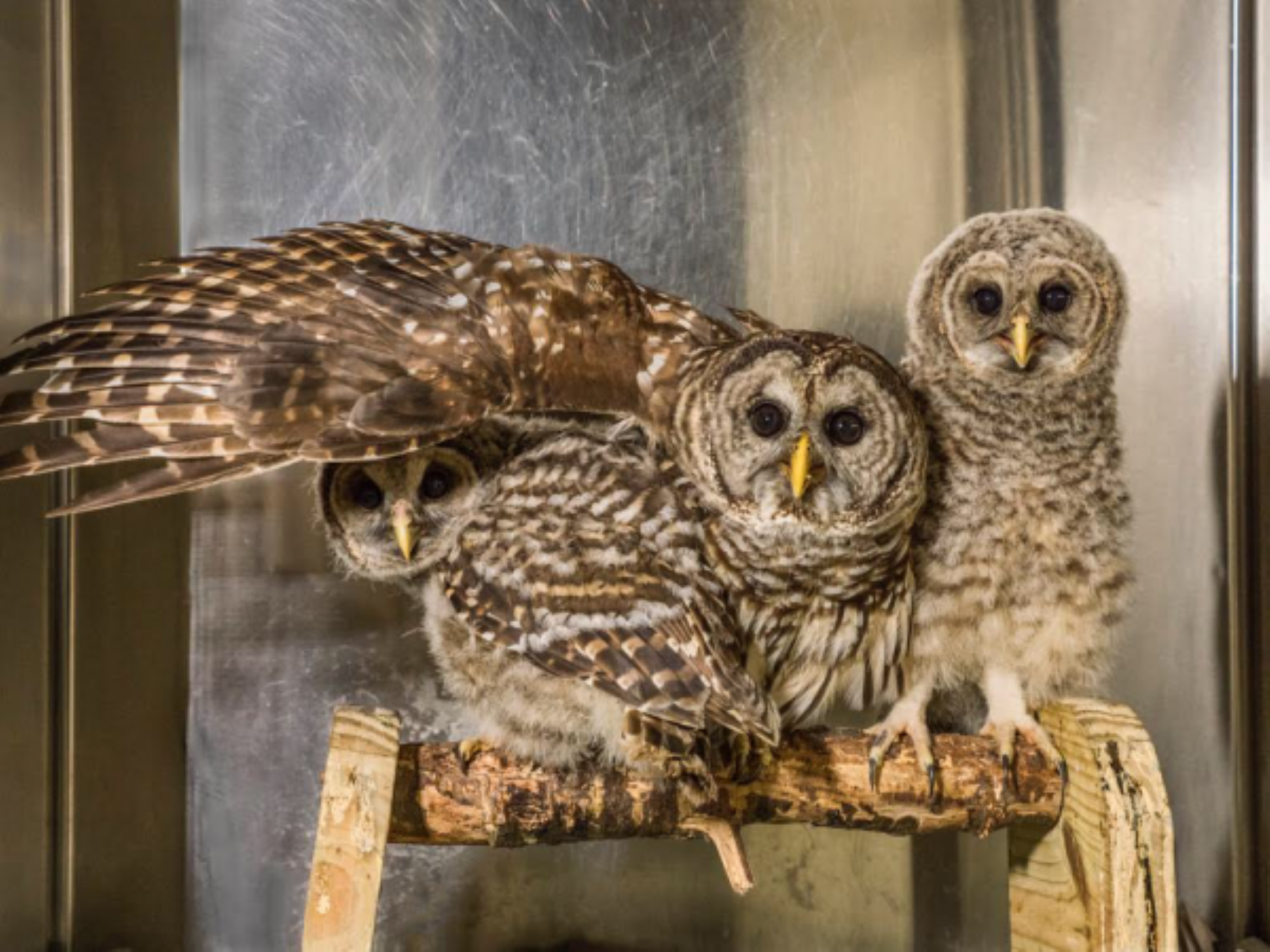DeKalb Wildlife Rescue Center Adapts To Coronavirus With Less Staff, Fewer Animals

A rehabilitating adult barred owl and two orphaned young owls she took in are seen at AWARE Wildlife Center in 2018. Because of the COVID-19 pandemic, the wildlife center is limiting its staff and is not accepting new patients.
Courtesy of AWARE Wildlife Center
On any given day, there are usually close to 20 people working and volunteering at AWARE Wildlife Center, a nonprofit in DeKalb County that rescues and rehabilitates wild animals.
Now, there are two at a time, working 12-hour shifts.
The COVID-19 pandemic is disrupting almost everything: schools, jobs, recreation. Wildlife rescue is on the list, too.
“Our biggest fear is that everyone on staff gets sick at the same time, and then there’s no one to take care of the animals,” said Marjan Ghadrdan, the animal care director at AWARE.

To limit exposure to coronavirus, they’ve limited the number of people feeding and caring for the animals. And to keep those people from becoming overwhelmed, the organization, which will take in any animal native to Georgia, from coyotes to chipmunks to hawks, is not accepting any new patients.
“We just can’t take in any new patients because we wouldn’t be able to help the ones that we have,” Ghadrdan said. “It’s hard. We’re really tired, and we’re working as hard as we can.”
Ghadrdan said the experience so far has made her more thankful for the volunteers the organization usually has.
“I didn’t think it was possible to appreciate them more, but I certainly do now,” she said.
One upside: Ghadrdan said they’ve gotten fewer calls from people reporting injured animals.
She said that could be because people staying home aren’t coming across as much wildlife, but maybe with fewer cars on the road, fewer animals are getting hit.








